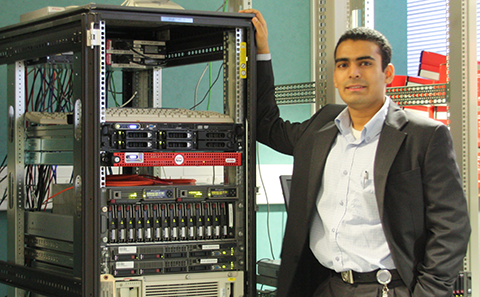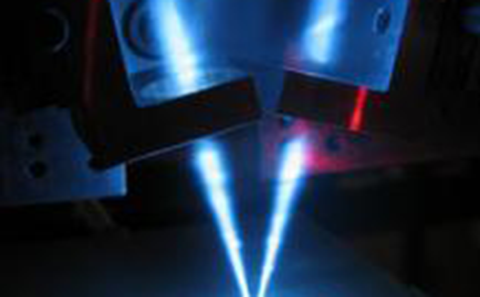The human and inspirational aspects of engineering are highlighted in a new series of posters being received this week by school science departments around the country. The poster series, Shine, Sniff, Wave, Pulse, has been devised and funded by the School of Electronics and Computer Science (ECS) at the University of Southampton, and uses arresting images to deliver an unusual message.
'We particularly wanted to show that engineering is more beautiful than people think,' says Averil MacDonald, Educational Consultant at ECS, 'as well as to demonstrate the astonishing range of activity in university engineering departments.'
Using images full of light, the posters focus on the human body, and include a blood pack to demonstrate the 'lab on a chip' for testing blood supplies (Pulse), fibre optics to show the impact on global communications (Shine), sound waves to highlight security and voice recognition (Wave), and an electronic nose (Sniff). 'Smell is the most difficult of all the senses to reproduce electronically,' said Averil, 'yet the strength of these posters is that they will bring home graphically and memorably to school pupils that engineering touches all of our lives very personally.'
Reaction from teachers has been positive and enthusiastic, with many requesting more copies for their classrooms. 'Thank you for supporting the teacher in the classroom,' said Martin O'Grady, Head of Science at the Ursuline College in Kent. 'The poster set is a great hit with subject teachers.'
ECS is undertaking this initiative to try to encourage more school pupils to consider engineering as a career. 'Choices about subject options have to be made well in advance to ensure that pupils have got the right A level profile for subjects like engineering,' said Averil MacDonald. 'These posters will hopefully inspire potential University students with the possibilities that are open to them if they choose engineering.'

